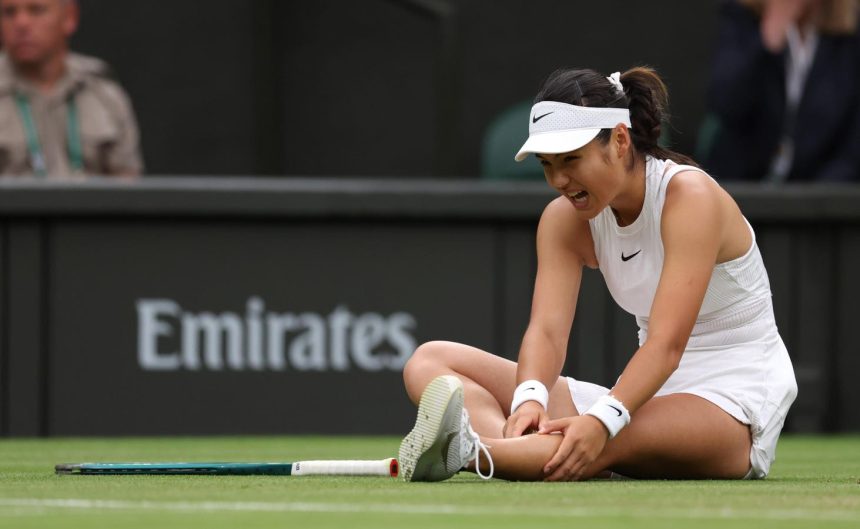Emma Raducanu’s tennis journey has been a whirlwind of highs and lows, punctuated by a stunning, yet isolated, Grand Slam victory at the 2021 US Open. Her talent is undeniable, but her career has been hampered by recurring injuries, leaving her potential largely untapped. In an attempt to address this persistent issue, Raducanu has enlisted the services of renowned fitness coach Yutaka Nakamura, known for his work with Grand Slam champions Maria Sharapova and Naomi Osaka. This move signifies Raducanu’s ambition to develop the physical robustness required to compete consistently at the highest level and build upon the foundation laid by her US Open triumph. Raducanu’s own words express a strong belief in her athletic potential and a commitment to working with Nakamura, a promising sign amidst a history of coaching changes.
The appointment of Nakamura appears strategically sound. Raducanu’s injury record, a vulnerability since her junior days, has repeatedly disrupted her progress. The demanding nature of professional tennis, with its relentless schedule and physical toll, has exposed her susceptibility to injury. The eight months she missed in 2023 due to wrist and ankle surgeries underscore the urgency of addressing this issue. While her US Open victory secured lucrative endorsements, it hasn’t translated into consistent on-court success. The fairytale narrative of New York needs to evolve into a sustainable career, and physical resilience is paramount to achieving that. Nakamura’s expertise in conditioning elite athletes offers a potential solution to Raducanu’s recurring setbacks.
Raducanu’s post-US Open journey has been marked by a palpable tension between expectation and reality. The sudden burst of success at such a young age has created an environment of impatience for further achievements. This pressure, combined with her own drive to excel, has led to a sense of restlessness and a rapid turnover of coaches. Raducanu’s inquisitive nature and tendency to challenge her coaching teams suggest a strong-willed individual seeking a perfect alignment of philosophies and methods. This search for the ideal coaching dynamic has contributed to the frequent changes, indicating a desire for a partnership that truly understands her needs and aspirations.
Furthermore, Raducanu’s fiercely independent spirit and the close involvement of her family have shaped her career path. The family’s hands-on approach, while perhaps unconventional in the world of professional tennis, reflects a strong sense of self-reliance. The early triumph at the US Open, achieved before the intense scrutiny that accompanies established stardom, may have inadvertently reinforced this independent streak. The sudden influx of attention and advice, following a victory achieved on her own terms, might have created a resistance to external influence. This dynamic underscores the complexities of navigating success at a young age, balancing the need for guidance with the desire to maintain autonomy.
The contrast between Raducanu’s unwavering self-belief and her on-court results presents a compelling narrative. Her assertion that her level of play warrants greater success, while understandable given her talent, hasn’t materialized into consistent results since her US Open win. This disconnect highlights the challenge of translating potential into tangible achievements. The lack of semi-final appearances since 2021 suggests a need for a more pragmatic approach, prioritizing consistent performance over pronouncements of future dominance. Building a robust physical foundation and developing a sustainable playing style will be crucial to bridging this gap between belief and achievement.
Ultimately, Raducanu’s success hinges on finding a balance between her independent nature and the wisdom of experienced guidance. Nakamura’s philosophy of understanding the athlete holistically, coupled with her return to her childhood coach Nick Cavaday, suggests a move towards building stronger, more enduring relationships. The test will lie in whether Raducanu can embrace the collaborative nature of professional tennis, allowing her team to contribute to her development while maintaining her own individuality. Her ability to manage her demanding schedule and create a routine that supports both physical and mental well-being will be crucial. The question remains whether she can channel her self-belief into a consistent and injury-free career, proving that her US Open triumph was not just a fleeting moment of brilliance, but the foundation of a lasting legacy.



